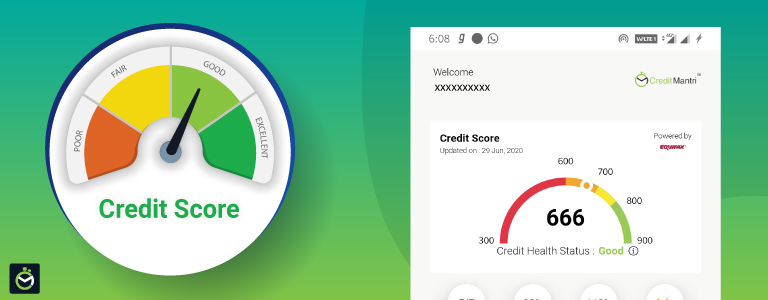Credit score is important in determining your eligibility for loans, credit cards, and other financial products. A higher credit or CIBIL score increases your chances of getting approved for loans and credit cards and helps you get better interest rates and terms. If you have a low CIBIL score, you may face difficulty obtaining credit or loans with favorable interest rates. If you have a low CIBIL score and you want to know about how to improve your CIBIL score, then there are several strategies you can use to improve your CIBIL score. These free credit score improvement strategies involve responsible credit management, such as making timely payments, low credit utilization, and maintaining a diverse credit mix. By following these free credit score improvement tips, you can take control of your credit and improve your financial future.
Important 11 Smart Strategies to Raise Your CIBIL Score
Understanding important strategies of how to improve CIBIL score and checking free credit score is crucial for better access to credit and favorable interest rates. Listed below are some important smart strategies to improve your CIBIL score.
- Raise CIBIL Disputes: If you come across any inaccuracies in your free credit score maintained by CIBIL (Credit Information Bureau Limited), it is essential to report them immediately. You can correct the erroneous information by raising a dispute with CIBIL, thereby improving your credit history and scores.
- Ensure Timely Payment Of Credit Card Debts: Punctual repayment of credit card dues is crucial for maintaining a good credit score. Late payments or missed deadlines can significantly impact your free credit score and poorly reflect your financial management skills. To avoid such situations, borrowers can set up reminders or opt for auto-pay facilities to ensure timely payment of credit card bills.
- Keep Credit Utilization Low: Credit utilization is the percentage of available credit you use against the total available credit limit in your credit card. Keeping your credit utilization below 30% is considered ideal, while utilization exceeding 40% can harm your credit score. Credit cardholders can set their credit limit to prevent credit utilization from exceeding the recommended limit.
- Avoid Excessive Credit Report Checks: Checking your free credit score regularly does not affect your credit score negatively, contrary to popular belief. However, frequent hard inquiries by lenders can lower your credit score. Therefore, it is advisable to limit free credit score checks to avoid multiple hard inquiries.
- Monitor Cibil Report For Multiple Applications: If you have taken multiple loans or have outstanding debts, monitoring your free credit score regularly is crucial. By reviewing your credit report, you can detect any errors or discrepancies and report them immediately. This proactive approach will help you maintain a good credit score and financial health.
- Retain Old Credit Cards: Old credit cards with no outstanding loans can significantly boost your CIBIL score. Therefore, cardholders should keep these cards instead of closing them to improve their credit rating.
- Refrain From Frequent Loan Or Credit Card Applications After Rejections: Applying for new loans frequently can negatively impact credit scores, leading to loan rejections. Instead, borrowers should wait and increase their account balance or clear outstanding loans for a certain period before applying for a new loan.
- Diversify Credit Portfolio: Diversifying credit portfolios can help borrowers achieve better CIBIL scores. To do so, borrowers must have secured and unsecured loans with long and short tenures. Borrowers should calculate their liabilities and check free credit score before applying for new loans to maintain a balance.
- Choose Longer Loan Tenure: Choosing loans with longer tenure can help borrowers avoid missing due dates or defaulting on loans during a financial crunch. Moreover, long-term loans can assist in managing finances and paying conveniently.
- Pay Your Loan EMIs On Time : Paying EMIs on time is the most crucial rule for borrowers to maintain a good CIBIL score. Late or missed repayments can significantly decrease credit score.
- Be Cautious Of Joint Loan Applications: Choosing a co-applicant wisely is necessary before going for a joint loan application, as reckless spending habits or missed repayments can lead to a fall in CIBIL scores for both applicants.
Having a good CIBIL score is essential for securing loans and credit cards at attractive interest rates. CIBIL score is a reflection of your creditworthiness and financial discipline. Therefore, taking steps to understand how to improve CIBIL score is crucial for your financial health. The strategies mentioned above, such as paying credit card bills on time, limiting credit utilization, and opting for longer-tenure loans, are simple yet effective ways to understand the basics of how to improve CIBIL score. Additionally, monitoring your free credit score and CIBIL report for errors on Bajaj Finserv Credit Pass online CIBIL score monitoring service can prevent any negative impact on your score. Diversifying your credit portfolio with different types of credit can also boost your score. Following these smart strategies on how to improve CIBIL score can improve your CIBIL score and strengthen your financial profile.

